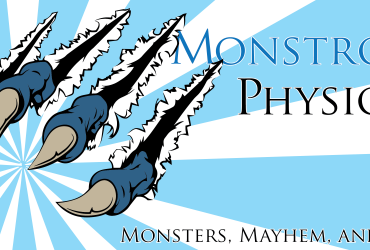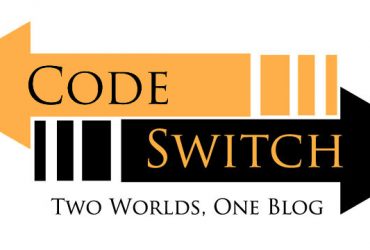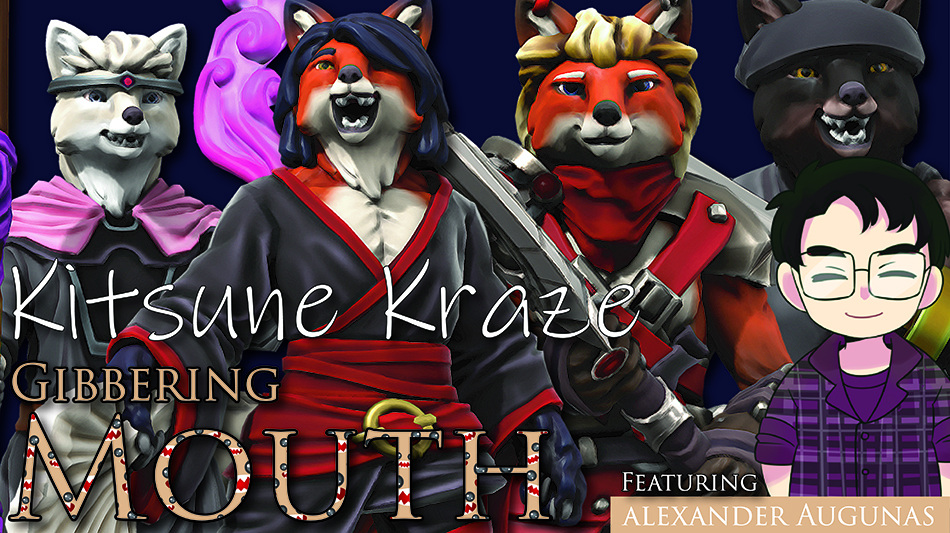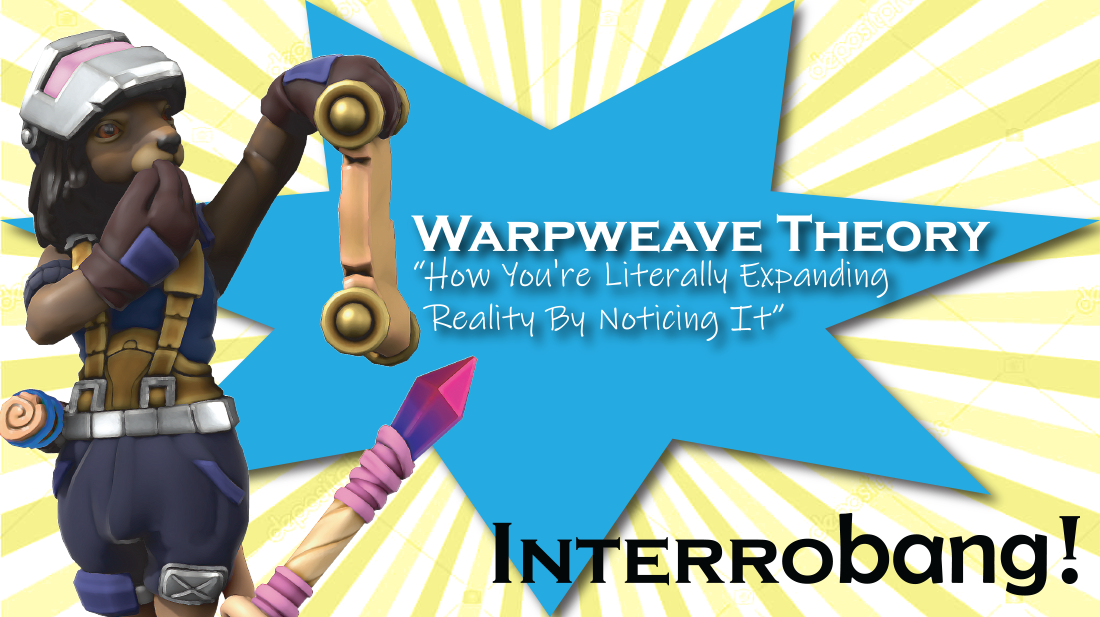One of the weird side effects about being a well-known author for the Pathfinder Roleplaying Game is that sometimes, it feels like I’m not allowed to ask questions on the internet. Since my name’s in a bunch if different First-Party products, people like to take what I say out of context or inflate it if my name’s attached to it—this has happened at least two times now, both times on Paizo’s forums. And while I didn’t get in trouble, per say, I did get the impression that some people who could potentially be inclined one day to give me work might be a bit annoyed about my inquisitive tendencies.
With this preface, I’d like to start doing a series where I talk about some of the weird, gray areas in the Pathfinder Roleplaying Game. Whenever I write these articles, there is a VERY good chance that there will likely be a preconceived notion about how the rule(s) I’m talking about should be run. The point of these article isn’t that no answer exists—it’s more about shining a light on how a zero allowances rules system like Pathfinder inherently creates “weird areas,” because in defining these areas we can get official answers made for them.
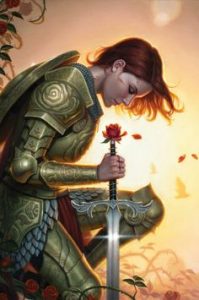
Guide us!
And okay, with this in mind let’s go on to our first “Guide Us” topic—what is an effect? No, seriously. Have you ever thought about this? The game is FILLED with references to what an effect is, but the term is not identified ANYWHERE and a staggering number of rules questions are confounded by the fact that the game doesn’t tell us what an effect is. Or, perhaps more specifically, what can be an effect.
Take this for an example: Let’s say you’re a bard, and you have the well-versed class feature. Well-versed gives you a +4 bonus on saving throws against bardic performance, sonic, and language-affecting effects. So, what’s an effect? Well, if we look at this list, right off of the bat we’ve got sonic (a type of energy damage AND a spell descriptor), language-dependent (a spell descriptor), and bardic performance (a class feature). This seems simple enough—spells and abilities often list when they’re language-dependent or sonic based, and bards have a class feature called bardic performance, so those effects simply apply like that.
Well, what about energy damage? Not all effects that deal energy damage have the relevant descriptor. For example, a gold dragon’s fire-based breath attack technically doesn’t have the fire descriptor. Does it still count as a fire effect? The logical answer is “yes,” because it is an effect that involves fire. While this is perfectly reasonable to assume, it has some problems that we’ll talk about later on because the word “effect” gets used in some wild and crazy ways in Pathfinder. Don’t believe me? That’s okay.
In 2013, the Pathfinder Design team issued a ruling that allowed half-orcs and half-elves to select human racial archetypes, favored class options, and class options because they have the human subtype. The reason given was that their elf blood and orc blood racial traits allowed them to “count as a human for all effects,” and this ruling basically stated that selecting archetypes et al was an effect related to race.
So, wait a minute. Things OTHER than spells and abilities can be effects? And wait, in 2015 the Pathfinder Design Team also stated that any effect that grants a morale bonus is a morale effect. But morale effects don’t exist outside of creature type immunities, and they’re not referenced anywhere in game….
See how the definition of what an “effect” is gets confusing fast? Let me show you the ULTIMATE offender in effect definition: the familiar.
Familiar Effects

I’m sure she’s REALLY interested in how badly I’m going to break her familiar.
Familiars have one line of text that makes them SUPER confusing. (Granted, this is another case of, “This is how we did it in 3.5, so this is how it is!” for many people, but based on word choice alone there’s a lot of dubiousness in there.) Anyway, here’s the problem line:
Familiar Basics: Use the basic statistics for a creature of the familiar’s kind, but with the following changes.
- Hit Dice: For the purpose of effects related to number of Hit Dice, use the master’s character level or the familiar’s normal HD total, whichever is higher.
Okay, so, what’s “an effect related to Hit Dice?”
From all of our prior deductions, an effect can be: a class feature, the result of a spell or ability, prestige class / feat / archetype / class feature requirements. Let’s take this apart line by line.
Spell or Ability
Plenty of spells and abilities have different effects based on your Hit Dice, like circle of death. This one is pretty easy, and it’s the most agreed upon stance.
Feat
So, if Hit Dice requirements were something related to the familiar’s feats, I suppose this would be an effect related to Hit Dice, right? Well, I guess my familiar can take the Leadership feat then. Leadership’s major requirement is having a character level of 7th, and the Beastbonded witch archetype can grant a familiar a feat as a bonus feat, so starting at 7th level a beastbonded witch can give her familiar the Leadership feat.
Skill Ranks, Caster Level, and Ability DC
HERE’S where people are going to shout heresy at me. So, according to Step 3 on Page 290 of the Pathfinder RPG Bestiary, Hit Dice “determine a wide variety of other statistics, including a creature’s hit points, attack bonuses, and special ability DCs.” So it’s pretty safe to say that the number of skill ranks you have is an effect determined by your Hit Dice, and while most people think that this means “use the animal’s skill ranks exactly as printed,” that isn’t what the familiar rules say. THIS is what the familiar rules say about skill ranks:
“For each skill in which either the master or the familiar has ranks, use either the normal skill ranks for an animal of that type or the master’s skill ranks, whichever is better. In either case, the familiar uses its own ability modifiers. Regardless of a familiar’s total skill modifiers, some skills may remain beyond the familiar’s ability to use. Familiars treat Acrobatics, Climb, Fly, Perception, Stealth, and Swim as class skills.”
Yikes. So, it does say to use the “normal skill ranks for an animal of that type.” However, it DOESN’T say, “Use the skill ranks for an animal of that type as printed in its stat block.” No. No it does not, because if it did that would prove this point moot. And we can actually ascern this because unlike skill ranks, hit points—a DIFFERENT Hit Dice-dependent effect—has its own special wording, as follows:
“The familiar has half the master’s total hit points (not including temporary hit points), rounded down, regardless of its actual Hit Dice.”
So yes, the familiar tells you to use the NORMAL rules or the WIZARD’S rules for skill ranks, but only the WIZARD’S rules for Hit Points. To me, this is stating that familiars get their own smattering of ranks as their wizard gains master levels DESPITE how familiars are traditionally run, and the crux of the argument comes down to the word “effect” and how it’s used here. (And in fact, this probably applies to calculating things like the caster level of the familiar’s spell-like abilities and its save DCs for its poison and the like. Again, those are both Hit Dice-dependent effects.)
Conclusion

In this visual analogy, I’m Nick and the Pathfinder Design Team is Judy. Sorry, guys! I love you, but CONTENT! No hard feelings, right?
As you can see, the “What is an effect” question is a weird one that has some strange effects on the game. The question of effects has grown and evolved with time, and hopefully some day we’ll get a more official answer. I sort of thing we need one, personally. It’s important to know how our game runs and how the rules work with one another.
But until next time, I’m Alex Augunas and I’m always here for YOU when you need a little bit of Guidance. Take care!
Alexander “Alex” Augunas has been playing roleplaying games since 2007, which isn’t nearly as long as 90% of his colleagues. Alexander is an active freelancer for the Pathfinder Roleplaying Game and is best known as the author of the Pact Magic Unbound series by Radiance House. Alex is the owner of Everyman Gaming, LLC and is often stylized as the Everyman Gamer in honor of Guidance’s original home. Alex also cohosts the Private Sanctuary Podcast, along with fellow blogger Anthony Li, and you can follow their exploits on Facebook in the 3.5 Private Sanctuary Group, or on Alex’s Twitter, @AlJAug.


